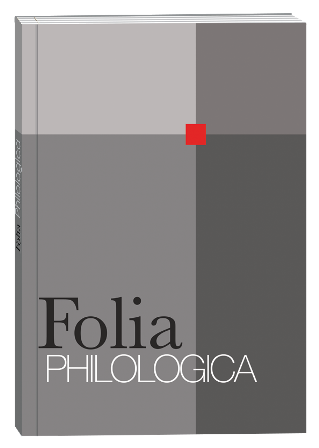THE INFLUENCE OF J.-P. SARTRE’S PHILOSOPHY ON THE DEVELOPMENT OF THE ENGLISH EXISTENTIAL NOVEL
DOI:
https://doi.org/10.17721/folia.philologica/2022/3/1Keywords:
philosophy, existentialism, creativity, personality, English literature, novel, J.-P. SartreAbstract
The article attempts to study English existentialism in the light of J.-P. Sartre's philosophy. J.-P. Sartre is considered a theorist of existentialism as a literary trend. Existential motives characteristic of the 20th century European literature are used in the works of the prominent representatives of the English literature, such as A. Murdoch, W. Golding, C. Wilson, and M. Spark. Existentialism as a philosophical trend has played an important role in finding a way out of crisis and forming a new social worldview. English existentialist writers broke the norms of the view on human relations with society. In their works they focused on the concept of man, their essence and inner world, determined their place, both in philosophy and in literature. The named scholars showed that history brings to the political forefront a person who is doomed to freedom with their whole being and repeatedly transgresses various forms of social existence. This is also the main philosophical platform of the European existential literature. Through the prism of accepting such a position, the main credo of Sartre’s entire life activity is justified: realizing and justifying his spiritual, moral and value choice, a person thereby assumes responsibility for the fate of the whole world. Sartre’s main works turned out to be free from serious shortcomings. On the contrary, the synthesis of democratic and individualistic tendencies appeared complex, contradictory, and therefore gave rise to further discussions in the world literature. However, the main theoretical positions of the thinker had a significant impact on the existential literature of Europe, in particular, on the English literature.
References
Jeanson, C., Jeanson, F. (1957). Alzhir vne zakona [Algeria is outlawed], transl. from French E. Rubinin and K. Khenkin; introd. article by R. Avakov. Moscow : Inostrannaya literatura, 358 p. [in Russian].
Sartre, J.-P. (1989). Ekzistentsializm – eto gumanizm [Existentialism is humanism]. Sumerki bogov: sbornik [Twilight of the Gods: compilation] / ed. by F. Nietzsche, Z. Freud, E. Fromm, A. Camus, J.-P. Sartre. Moscow : Politizdat, pp. 319–344 [in Russian].
Heidegger, M. (1962). Being and Time, transl. by J. Macquarrie and E. Robinson. New York : Harper and Row, 589 p.
Kierkegaard, S. (1941). Concluding Unscientific Postscript, transl. by W. Lowrie and J. Campbell. Princeton : Princeton University Press, 368 p.
Kant, I. (1960). Religion within the limits of reason alone, transl. by T.M. Greene and H.H. Hudson. New York : Harper& Row, 190 p.
Hegel, G.W.F. (1953). Reason in History, transl. by R.S. Hartman. New York, 144 p.
Camus, A. (1995). Myth of Sisyphus, transl. by J. O’Brien. Middlesex : Penguin Books, 192 p.









